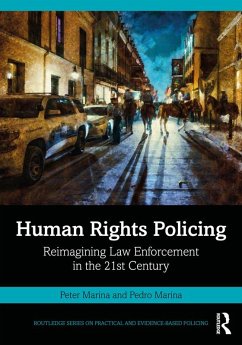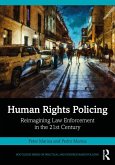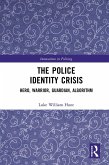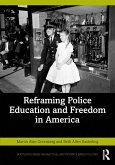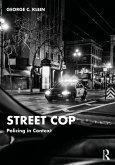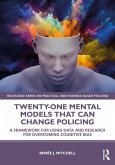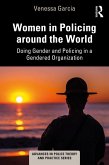Human rights remain a relatively new concept in human civilization, but one largely unrealized at this point in history. Can police officers serve as the harbingers of human rights in a world that desperately needs it? We say yes. It starts with applying human rights to police work. But this book does more than teach police officers how to apply human rights to their careers. It reimagines the institution of law enforcement as we push toward the later stages of modernity. Refusing to tell readers what to think, this book provides the intellectual tools on how to think about policing in new and creative ways. It seeks to bring out the readers' full creative potential as law enforcement agents, police officers, and criminal justice professionals and activists.
This book advances new ideas throughout each chapter on how to make human rights policing a reality. The ideas in each chapter build on each other, offering a small piece of the puzzle and all the steps necessary to advance the goals of human rights policing. The book (1) analyzes the United Nations Declaration of Human Rights and how it applies to policing, (2) develops a three-fold typology called "Human Rights Policing Social Interactions," (3) discusses the relationship between the use of power and human rights, (4) explains the power of human agency to transcend the ordinary, (5) uncovers the creation of folk devils that threaten human rights, (6) describes how to use the sociological imagination to understand community members, (7) reveals the importance of storytelling to see the world from the actor's point of view, (8) discusses the double consciousness and the creation of the "other," (9) describes what we call "soulful policing" and engaging with the community- Chicago style, and (10) provides social policy suggestions at both the national level and local policing level.
This book will challenge the reader in fascinating and highly surprising ways to think about, and, further, to reimagine policing as we push toward the future. It will appeal to professionals at all levels of law enforcement, and will be useful in programs offering degrees and/or certificates to students of criminal justice.
Dieser Download kann aus rechtlichen Gründen nur mit Rechnungsadresse in A, B, BG, CY, CZ, D, DK, EW, E, FIN, F, GR, HR, H, IRL, I, LT, L, LR, M, NL, PL, P, R, S, SLO, SK ausgeliefert werden.
Edward LW Green, Roosevelt University, Chicago, IL
"Professor Marina and retired N.O.P.D. Lieutenant Pedro Marina bring a fresh, innovative, and exciting perspective on human rights and policing. Their book offers a paradigm shift away from the 'This is the way we have always done it,' mentality currently keeping police agencies from evolving. This book is a must-read for police chiefs and law enforcement executives looking for a way to jump-start their agencies' community engagement philosophy and improve understanding of the role human rights plays in policing."
Ron Camacho, Chief, Chambersburg Pennsylvania Police Department
"Human Rights Policing is a collaboration between a retired lieutenant from the New Orleans Police Department, with 30 years of experience in law enforcement, and an academic sociologist known for his longstanding commitment to challenging the systemic issues that have plagued US policing. Their shared mission is to put forward a new model of policing that they call 'Human Rights Policing,' which is based upon the United Nations' definition of human rights, which includes the right to life, liberty, security of person, freedom from arbitrary arrest, detention, and many other protections. Written in an engaging and accessible style, with the use of real-life examples, this book provides a practical guide for the implementation of Human Rights Policing. While it will undoubtedly prove to be essential reading for all those working in law enforcement, it also functions as a useful and thought-provoking contribution to the debate on the future of policing in this country."
Jayne Mooney, John Jay College of Criminal Justice, City University of New York

